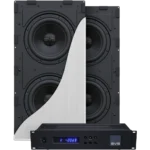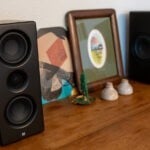Manuel Delaflor
Supporting Actor
- Joined
- May 25, 2001
- Messages
- 657
Max
Well, of course. And you know why in the first instance? Because there is no objetive meaning for "musical" regarding a sub, all we have is a mix of complex answers from many people, that in the end are just opinions, hardly anything of objective value.
In any case, I sustain my answer. Although they will not sound exactly the same, but both will be enough "musical" if the room and its location are acoustically good.
Dont fight with ideas, when in doubt check with the world.
Well, of course. And you know why in the first instance? Because there is no objetive meaning for "musical" regarding a sub, all we have is a mix of complex answers from many people, that in the end are just opinions, hardly anything of objective value.
In any case, I sustain my answer. Although they will not sound exactly the same, but both will be enough "musical" if the room and its location are acoustically good.
Dont fight with ideas, when in doubt check with the world.





